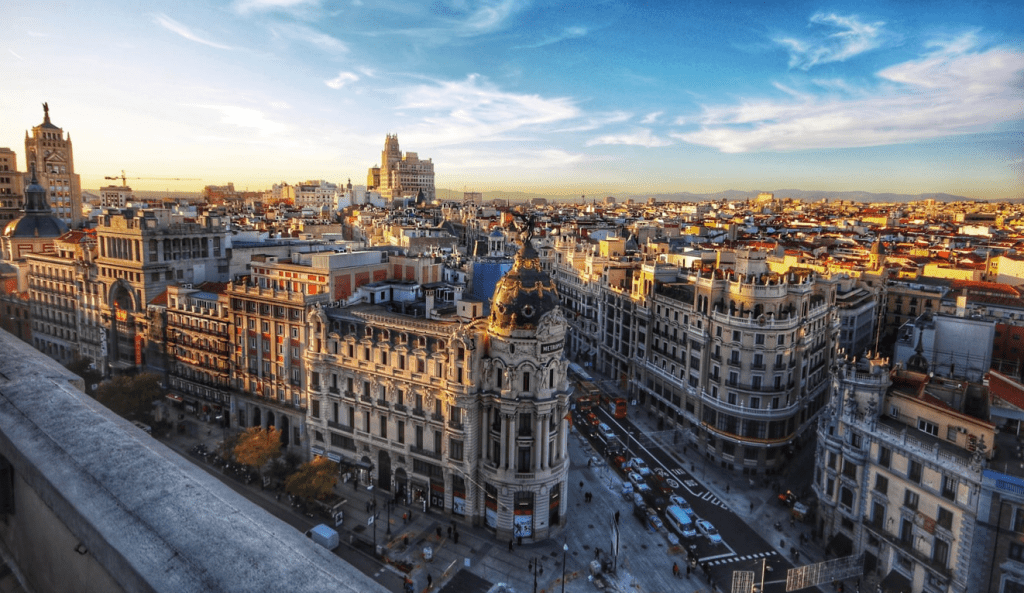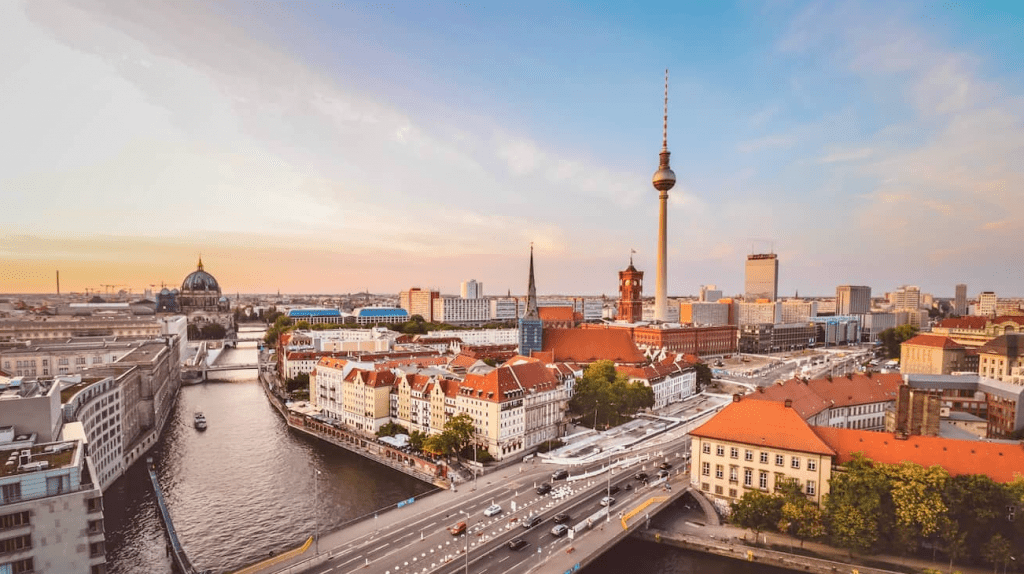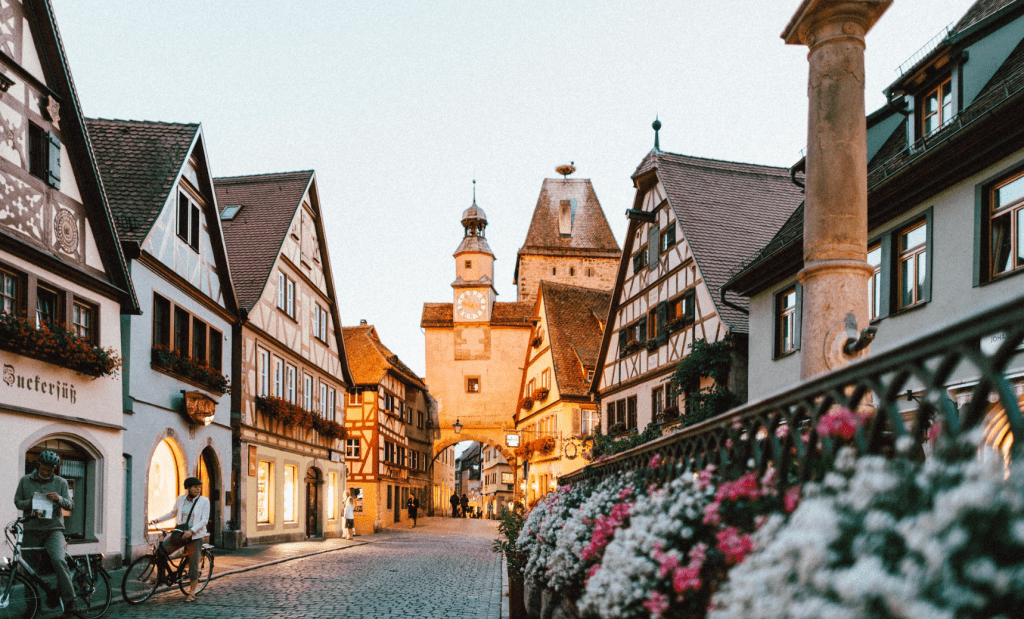Europe Prices can vary widely depending on where you are in the world. Europe has multiple visa zones, and many different currencies.
You can book a room for 45 EUR in some parts of Greece
The same price can be obtained in Paris for a dorm of 16 people.
Berlin offers cheap and delicious street food for less than 10 EUR. However, a simple sit-down dinner in Austria can cost up to 25 EUR. In Norway it is easily twice as expensive.
One of the questions that I am asked most often is “How expensive is it to travel to Europe?” “
It depends where you’re going. Europe is not a big place. You can’t paint Europe with a broad brush.
Today, I’m going to discuss how much you will need for a trip around Western Europe, including the Eurozone plus Switzerland, and UK.
What are the prices of things?

As I mentioned, the prices of things can be very different depending on your location.
Accommodation
In Western Europe, you can expect to spend 25-45 EUR per person for a shared room or 75-100 EUR per private room at a budget two-star hotel. In Greece and Portugal you will find dormitory beds at a cost of 15-20 EUR and double rooms for 40-55 EUR.
Prices in England are typically around 30 GBP for a shared room, and 50-60 GBP for private rooms at two-star guesthouses and hotels.
Food
Food prices vary just as much as the cost of accommodation. You can buy sandwiches, pizzas, kebabs and sausages at small food stalls or street food stands in Western Europe for 3-7 EUR. Cheap Meals (think of a takeout meal from a Chinese or fast food restaurant), cost between 9-12 EUR. Restaurant meals in casual and traditional restaurants cost about 15-25 EUR.
The price of nicer restaurants can go up to 30 EUR. Beer costs 2-5 EUR. A glass of wine, 2-7 EUR. Cappuccino, 2-5 EUR. Cocktails, 6-14 EUR. For 45-65 EUR, you can prepare food to last a whole week.
Transport
Trains are the easiest and cheapest way to get around Europe . They connect all major cities in Europe, plus they can be very cheap when booked well ahead. The cost of high-speed trains can be as much as 85 EUR.

You can save money by taking regional trains or slower trains (internal trains that take 4-6 hours are priced between 25 and 45 EUR). Consider getting an Eurail Pass If you plan to travel a lot on the train. If you plan ahead, flights will cost between 30 and 50 EUR.
If you plan ahead, the bus is the most affordable option. You can get a ticket for as little as 5 EUR (you’ll pay between 15-30 EUR otherwise for a trip of 2 to 3 hours).
Most cities offer transportation for as little as 2-5 EUR per metro or bus. For around 10 EUR, most places provide daily passes that include unlimited use of public transportation.
Activities
The majority of museums begin at around 10-14 EUR. A half-day tour (such a a 2-hour bike ride) costs 25-35 EUR, while a full-day tour (such a wine tasting) can cost up to 100 EUR. The cost can vary greatly depending on the country. Prices are higher in popular and capital cities than in smaller towns and rural areas.
Saving Money in Western Europe
Western Europe is a place where costs can easily add up. However, there are many ways to cut back on your expenses if you’re strategic. It is particularly true for food, drinks, and transport. Travel like a local and learn from their experiences as you navigate the high-cost of living areas.
Here are some tips.
Picnic
Europe is full of small shops, farmers’ markets and supermarkets, where you can purchase pre-made sandwiches, or the ingredients for your own. You can buy some food and eat it outside while watching the city. This is a more affordable and enjoyable way to enjoy food.
Go local
Don’t like picnics? There are many other ways you can save on your food. You can eat at street vendors, local pizza shops, sandwich shops, and Maoz. You can get a great taste of local food at much lower prices by eating in “grab-and-go” restaurants.
Stay at a hostel in Europe. Consider using Couchsurfing if you do not have friends to stay with. You can connect with people who are willing to let you stay for free.
Book Early to Fly Cheap
When you are certain of your destination and the train is not an option, book early. Many discount airlines offer fares between 15 and 25 EUR. Make sure the airport is not too far from your home, because sometimes the cost of transportation to the secondary airport can negate the savings you get from flying with a budget airline.
You will also have to pay for the checked baggage when you fly on cheap flights. One checked bag costs between 25 and 39 EUR. Avoid this additional cost by only traveling with your carry-on luggage.
Alcohol is expensive. Choose when to party or go for happy hour. You can get alcohol cheaply at hostel bars or in the supermarket. Your bank account will be wiped out if you party your way around the world.

Enjoy the Free Tours
One of Europe’s greatest assets is the availability of free walking tours. These tours are a good way to learn about the history of a city, see its attractions and find your bearings, all without having to spend any money. There are free walking tours in almost every European city. You can find out more information from your hostel or tourism board!
Even though the tours may be advertised as being “free,” always tip your tour guide at the end. That’s what they do to make a living.
Camp
You can camp in Europe with your tent for as little as 10-15 EUR per day. Campspaceis a great camping service in Europe. You can pitch your tent for free, or a small fee (5-15 EUR), on someone else’s lawn. The profiles of all gardeners tell you about the services they provide.
Some countries, such as Norway, Sweden and Finland, allow you to camp free of charge as long as they follow some simple guidelines.
Buy a Eurail Pass
I saved hundreds of dollars by using them. They are great if you’re traveling long distances or through multiple countries. More information on how to choose an Eurail Pass
Get the city’s tourist card
The local tourism office issues a card that includes all of their restaurants, attractions and tours. The card offers free admission and significant discounts to all attractions, tours and restaurants in the city. It also includes free public transport within the city (a major plus) and some discounts at local shopping centers and restaurants. These cards save you a lot of money. Get one of these cards if you’re planning to do a lot sightseeing.
Rideshare
This is a very popular way to travel around Europe. I used it in Switzerland, France and the UK. BlaBlaCar is the largest website that connects riders with drivers. It allows you to travel much more cheaply than taking a train or bus. This is a great way to get off highways and see more of the countryside. It also allows you to meet locals. This is a much cheaper and more fun way to travel than the bus or train.
Travel by bus
Although not as convenient or comfortable as trains, low cost bus services like Flixbus will get you to your destination on the continent. As low as 5 EUR can be paid for rides. You can ride from Berlin to Munich for about 25 EUR and Paris to Bordeaux as little as 10 EUR. Longer routes, like Amsterdam to Copenhagen start at around 47 EUR.
Hitchhike
I have met many travelers who hitchhiked in Europe. (I did it in Bulgaria and Iceland). Other countries may require more effort (Italy and Spain) than others (Romania). HitchWikiis a great website to get hitchhiking information.
Avoid the peak season by traveling in off-season
The most popular, and therefore most expensive period to travel Europe is between June and August. During this period, you’ll see more people and pay higher prices on the entire continent. Avoid this time and its sky-high prices for accommodation and flights if you can.
What is a good daily budget in Europe?
If you have a budget of 80-120 EUR a day for ‘backpackers,’ then your main focus would be to take buses, avoid flights and trains, stay in dorms that are cheap, and engage in free or cheap activities, such as visiting museums during free days. You will also cook most of the meals and occasionally eat cheap food on the street. Accommodation is one of Europe’s biggest expenses, and if that can be reduced, then you will have more money to travel.
With a budget between 175-225 EUR you can get a room at an Airbnb, or in a budget two-star hotel. You could also eat out most of the time, have some drinks during happy hour, and pay for some activities such as museums and famous tourist attractions.
If you have a budget of 325 EUR a day, then you could stay in pricier hotels, dine at a sit-down restaurant every time, drink more and take part in more expensive activities, such as wine tours.







Leave a Reply